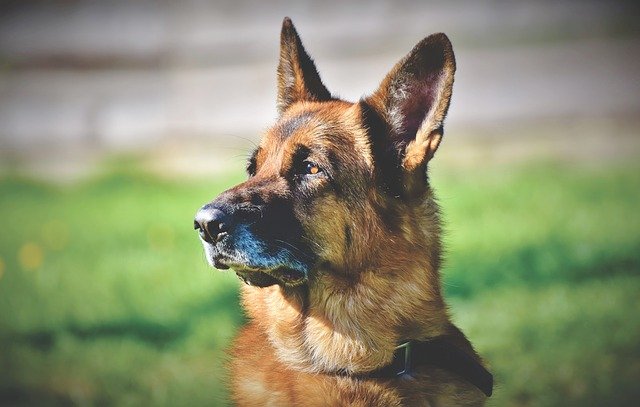Do you know the difference between guard dogs and watchdogs? Do they mean mostly the same thing in your mind? If so, you aren’t alone. It’s a common occurrence for the public to treat these types of dogs interchangeably, but they are vastly different.
If you’re considering adding an extra layer of protection to your home, it’s important to understand the characteristics and roles of guard and watchdogs. In addition, the purpose these animals serve requires different forms of training, and the breed you choose can further complicate your goals.
Table of Contents
The Importance of Choosing The Right Protection Dog Breed
Before looking for German short-haired puppies for sale, it is essential to understand that not every breed will make a good watchdog, and some are equally unsuited to be guards.
You may want to choose a breed that is well-bred for either role, such as:
- Cane Corsos
- American Bulldogs
- Dobermans
- German Shepherds
Any animal you buy for home protection should be highly-intelligent, obedient, responsive, and agile. These traits ensure they train well and take split-second action should danger threaten your household. You also want the other canine characteristics that make them loyal companions to shine through, such as having an affectionate nature. Combine these traits with their powerful stature, and anyone causing trouble will think twice before attempting to engage.
Watchdog or Guard Dog: Choosing the Best Role for Your Dog
Now that you have a better idea of what dog to consider as a protector let’s look at how the roles of watchdog and guard dog are different.
The Role of a Watchdog
The role of a watchdog is to act like a castle guard. It will be by the door the instant someone is coming up the steps and not taking their eyes off them. They take this stance to communicate their awareness of the visitor’s presence.
This behavior is unique because trained watchdogs will know who is expected and who isn’t. They’re also keenly aware of their environments, so if anything is amiss, you’ll immediately hear about it. This heightened level of attention requires a vigilant nature and stamina within the breed you choose, along with a strong bark that intimidates and notifies.
While an imposing presence is a plus, the stature of the dog is only partially relevant since they aren’t going to attack. You can achieve the same results with smaller breeds like terriers, dachshunds, and mini pins.
The Role of a Guard Dog
There are many similar qualities about guard dogs that you’ll find in watchdogs. From intimidating stares and purposeful presence to intelligent responsiveness, it’s easy to understand why these protection roles get conflated. However, there is one distinction that quickly sets these two dogs apart-it will incapacitate threats.
The protective instinct within a trained guard dog drives it to treat strangers with suspicion and attack if threatened. These animals are not scared off like a watchdog might be, which is why law enforcement and security agencies rely on these canines so heavily. Because of their high intelligence, they socialize well and train quickly because their instincts have been honed over centuries of breeding.
Keep in mind, unlike watchdogs, your guard dog should be a large breed, so it has the physical capability to take down an intruder successfully. Rottweilers, German Shepherds, and Bull Mastiffs are extremely popular for this protection role, but training will be essential to manage them.
Training is a Must
One of the biggest dangers about owning a dog for protection is that you’re responsible for helping it discern between threats and safe everyday encounters. However, with proper training, you may be able to manage your pet and could experience aggression directed toward you.
If you intend to have a line of defense against burglars but not have the mailman get bitten, consider investing in a security system instead. All it takes is one incident of your dog overstepping the line of protective loyalty to attack mode with an innocent person, and you’ll find yourself in a world of legal troubles.
Ideally, you will only attempt to train a guard dog independently if you’re an experienced dog trainer. You need a specialist to assist you in the process with many years of experience.
Final Thoughts
It’s hard to not feel vulnerable in today’s geo-political climate, but if an alarm system and firearms don’t feel adequate, a watch or guard dog may be a smart choice. Just be sure to first do your research, speak with trainers in your area, and weigh the risks versus the benefits before making a final decision.
Consider what threats you need protection against and if you would have the dedication necessary to ensure your dog is manageable. For example, is it enough to have a watchdog to alert you about potential danger? Or do you need a guard dog strong enough to attack and disable? Whichever option you choose to increase safety on your property, having a canine protector can bring much-needed reassurance.







